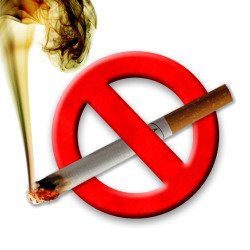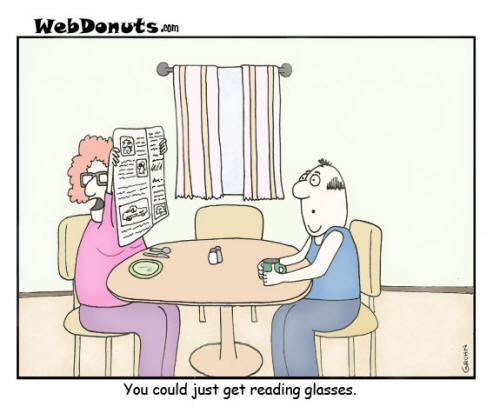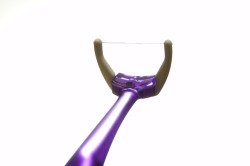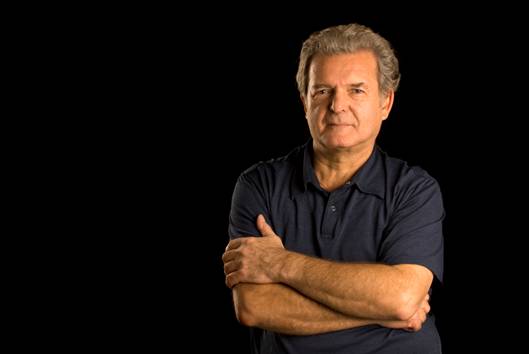Stay Healthy
As baby boomers now, our means to stay healthy may have been a lot stronger when we were in grade school! Remember those trips to the school nurse to have our eyes checked? Learning how to brush our teeth up and down? The importance of washing our hands before each meal? And who among us knew anything about job stress? Well, let's fast forward to today and get back to basics:
Stay Healthy - Don't Smoke
We've known for a long time that tobacco and smoking harm virtually every organ in our body, and degrade our general health (remember your health class from high school and seeing lung specimens). The Center for Disease Control (CDC) offers the following statistics:

- Cigarette smokers are found to be much more likely to develop various forms of cancers – men are 23 times more likely and women are 13 times more likely – when compared to those who have never smoked. Cancers include lung, kidney, bladder, pancreas, esophagus, uterine, cervix, oral cavity, lips, et al.
- Cigarette smokers are 2-4 times more likely than non-smokers to develop coronary heart disease.
- Smoking doubles our chances for stroke.
- Exposure to secondhand smoke may cause heart disease and lung cancer in nonsmoking adults.
- Nonsmokers exposed to secondhand smoke at home or work have increased risks of heart disease by 25–30%, and lung cancer by 20–30%.
- Breathing secondhand smoke is immediately harmful to the cardiovascular system, increasing the risk of heart attack (those with heart disease are especially at risk).
Smoking negates so many efforts to stay healthy. Albeit a serious addiction, the smoking habit can be stopped and after a few years, many of the above risk factors can be reduced significantly. The most effective means to quit smoking is through a combination of counseling and medications.
Stay Healthy - Get Regular Eye Care

Not everything worsens with age, but such is the case with eye sight. Our vision for close work will normally begin to blur by age 40 or so, and by 50 nearly all of us will need eye glasses, contact lenses or other corrective measure. The lens material and muscles in our eyes become less pliable and more rigid as we age, no longer allowing the lens to change shape in order to focus on things close up, i.e., less than arms length away.
Ignoring blurry vision is no way to stay healthy; having our eyes checked annually enables the proper corrections to be made, and also avoids more serious issues such as glaucoma, which can creep up in our 40s and 50s with no obvious symptoms and cause irreversible vision loss.
Stay Healthy - Protect Hearing
Hearing loss is somewhat affected by aging, at least to the extent that by age 75, about 35% of us will have lost some degree of hearing ability beginning with high pitch sounds.
Recent medical research has identified a particular gene which regulates the amount of glutamate, a brain chemical which transmits nerve signals; excessively high levels can destroy sensory cells and neurons otherwise needed for proper hearing. Given this discovery, it may be possible in coming years to treat this problem with a drug.
The other typical cause of hearing loss is exposure to excessive noise, which damages hair cells in the inner ear that carry sounds to the brain. The greater the exposure, the greater the hearing loss; long term exposure to sound levels above 85 decibels can cause permanent damage. Hence the healthy habit here is simple; either avoid such excessive noise levels or wear ear protection when exposed to the heavy din of power tools and machinery, including lawn mowers.
Stay Healthy - Get Regular Dental Care
Good dental care means much more than a nice smile and looking good. While appearances are still important, it’s essential to our stay healthy lifestyle that we not overlook potential dental problems at this stage of our boomer life:
- Gum Disease
Although it’s not painful and doesn’t necessarily show up on x-rays, gum disease can cause bones under the gum line to dissolve. Because the resulting bone loss can then cause tooth loss, your hygienist must carefully check all of your gums at each check-up (twice yearly is best). Typical symptoms of gum disease include loose teeth, bleeding gums, reduced saliva (causing dry mouth), and an overall bad taste in your mouth.

- Gum Infection
- Old Fillings
- Yellow Teeth
Recent medical research has discovered periodontal pathogens, i.e., bacteria from gum infections, in plaques that have built up in arteries. Hence there is a clear link between gum infections and such ailments as heart disease, high blood pressure, stroke, diabetes, chronic kidney disease, osteoporosis and even some forms of cancer. Twice daily flossing and brushing is a key healthy habit, in addition to regular dental checkups.
Chances are the fillings we received years back are silver amalgam, which by now may be coming loose or starting to leak. Each refilling and replacement requires that a bit more of the tooth structure be removed, eventually weakening the tooth. Fortunately, the practice today is for dentists to replace old fillings with a more durable white ceramic material which expands and contracts at the same rate as the tooth, resulting in less stress for the remaining tooth structure.
We care about our appearance, and yellow teeth make us look older. With all due respect to the old Pepsodent commercial, teeth whitening procedures, bleaching and veneers are the most effective ways to “wonder where the yellow went”.
Stay Healthy - Prevent Bone Loss

Osteoporosis – loss of bone mass – affects nearly 25 million Americans, of whom at least 80% are women. The loss of bone mass and strength increases the risk of fractures and breaks, especially hip fractures. Women are most at risk since they lose 15-30% of their bone mass during the first five years following menopause.
The most effective means of prevention and treatment begins with education and consulting with our doctor to determine the degree of risk. Some key points:
- At age 50, our body needs 1200 mg/day of calcium, which can be had from dairy and calcium-fortified products such as cereal and juices, together with calcium supplements. Vitamin D (800-1000 mg/day) is also needed to help the body absorb the calcium (high salt diets and alcohol thwart calcium absorption).
- Exercise such as walking, aerobics, dancing, et al, strengthens bones and muscles, if done for at least 20 minute periods three times each week.
- Subject to a doctor’s advice, hormone therapy could increase bone mass for women currently experiencing or having gone through menopause in the last 5-7 years.
- Smoking and excessive coffee consumption have each been linked to the loss of bone mass.
- Certain medications may promote bone loss – examples include thyroid hormones, anti-seizure meds, high doses of aluminum-rich antacids, and some steroid medicines.
Stay Healthy - Be Socially Connected
As we’ve talked about elsewhere (see Relationship Tips), one of our basic human needs is to be connected – we want and need a community. As we get older, we need to maintain and even expand our daily contacts with loved ones, friends, neighbors and co-workers alike, to keep ourselves grounded and accountable.
To stay healthy and maintain a healthy lifestyle, it’s important to have those that will “watch our back”, especially if we find ourselves suddenly single at any point. Today we have so many options – an ever-expanding field of social media in addition to volunteer groups, special interest classes, church events, activity groups, health clubs, neighborhood associations, business networks, et al.
Stay Healthy - Manage Job Stress
Unless we're retired, most of us spend a large part of our day at work, regardless of being the primary wage earner for our household. There is growing evidence that our work and the various stress factors that go with it, greatly affect a healthy lifestyle. Those factors include whether or not we even have a job, how secure we feel about keeping it, how much we enjoy it (or not), our ability to perform the physical and mental responsibilities of our job, and even our means of getting to and from it each day.

Our jobs give us more than just financial support; we also derive our sense of purpose and well-being. It gives structure to our day, and a seat in another social network. Research has shown that the fear of loosing our job, and all the things that go with it, causes enough stress to be as hazardous to our health as a serious illness.
Feeling just a bit of stress on occasion at work is normal, and in fact some of us do our very best under those circumstances. Our hearts pump faster and we get an adrenaline rush that might be just the thing to get over the hump and finish a particular assignment. But too much, too often and for too long can be very harmful; it can make us sick in the short term, and can lead to high blood pressure, heart disease, back pain and depression in the long term. Some ways to manage job stress:
- Think through every facet of your job, and identify what tasks or other aspects seem most troubling to you on a regular basis; decide what you can and can’t do to either change those items or make changes in your approach to them.
- Make certain that you and your supervisor are clear on your job requirements and how you are expected to perform. It could be that what you find most stressful aren’t necessarily the primary requirements, or that there are other means - less stressful – to accomplish them.
- Chances are that you receive periodic job evaluations from your supervisor. Use those occasions to discuss your strengths and weaknesses, and any questions or concerns that you’ve been carrying. Ask for guidance or assistance for those items which seem most overwhelming. See if a flexible work schedule is an option for your job.
- Take a time-out to get organized; identify those tasks which are most urgent and keep a list of priorities and allocate your energies accordingly. Set aside a time to answer e-mail so it doesn’t become an interruption; try to handle each piece of paper only once.
- Make certain your job skills are up to date - fear of not being able to keep up, or losing your job altogether due to poor performance, is the biggest stress-maker of all!

- When faced with a large assignment, break it up into smaller, more manageable tasks and get started on the first one. Don’t procrastinate.
- Don’t load your plate so fully that you no longer see the plate; know when to say “no”.
- Avoid trying to multi-task, unless one or more projects really do have some down times that require you to wait for something external before you can continue.
- Try to arrange your work day to create periods of time where you have the fewest distractions. Advise your co-workers accordingly, and delegate tasks if you have authority to do so. Be sure to take the work breaks that you’re entitled to each day.
- Don’t take your work home with you, figuratively or literally, but do celebrate the accomplishments and reward yourself.
- Keep your job in its proper perspective and remind yourself of the real priorities in your life. While a job is indeed important, it may rank no higher than third, behind God and family.
At the end of the day, if we find our job is so stressful that it’s ruining our mental and physical health, it’s probably time for a change. Keep in mind that it’s obviously best to have another job lined up before quitting the one we have, lest we find even greater stress being unemployed. Carefully consider your talents and passions for what you would like to do in your next job, and the options available to get you there – asking for a job transfer, applying for re-training, going back to school, making a career change, et al. Pending our particular circumstances, our prospects for long term gain may well justify the short term pain.
Stay Healthy - Don't "Retire"
The boomer generation is known for being very different from any before, and so our parent’s retirement may not be the right thing for us. In all our efforts to stay healthy as outlined above, it’s so important to have a daily purpose, a reason to get up and enjoy each day. If and when we do choose to retire from our working career, we must have a plan – to work part-time, join a volunteer agency in your area of interest or expertise, assist at a local school or church, go back to school ourselves, or start a new venture as a home occupation (scroll over to About Me).
Studies on aging show that when we simply “quit” and do nothing, our physical and mental health deteriorate substantially. Our goal is to control our own schedule, but still never find enough time in the day to do everything we want!
- Home ›
- Health Tips ›
- Stay Healthy
